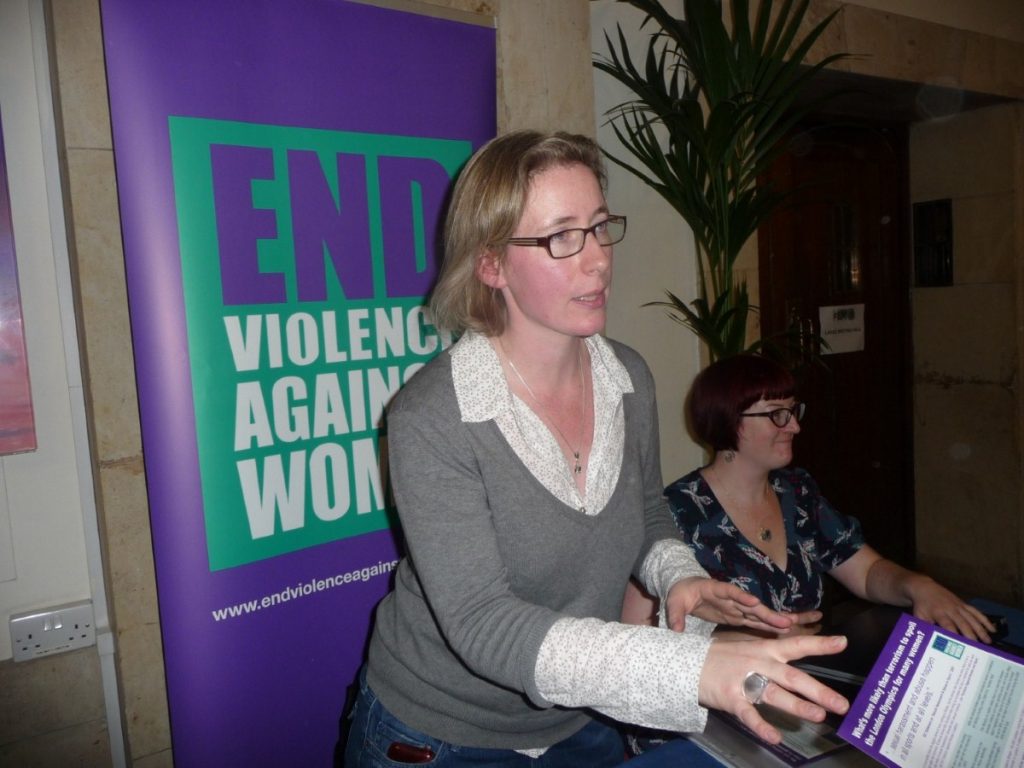Comment: Politicians talk the talk on sexual harassment – but will they walk the walk?
By Sarah Green
The Liberal Democrat leadership might have wanted to keep the focus at their Spring conference on the Eastleigh victory but the allegations of sexual harassment against party bigwig Lord Rennard have not been laid to rest. The media featured near continuous vox pops with female party activists asking them if the allegations mattered to them or affected their commitment to the party.
In the days after the allegations there were two notable responses made by media and political commentators. As news reporters focused on what Nick Clegg did or did not know, commentators rushed to trivialise the issue, using euphemisms to play it down, "unwanted advances" and "inappropriate behaviour".
Others rushed to say that women facing harassment, in politics or any other walk of life, need to just stand up to the abuser, even stiletto them if possible, just pull your socks up girls. Very few brought the matter back to its basics – men who sexually harass in the workplace often target women who are less powerful than they are, less likely to be believed if they call the behaviour out, possibly putting their income or future career at some risk.


The woman who made the initial allegations has said she has received messages from women workers in other political parties making similar claims. We await the outcome of the Lib Dems’ internal investigation and for all the political parties to state clearly what their policies and practices are on sexual harassment within their workplaces because they haven’t, despite our requests.
But women’s rights campaigners are also alarmed at these allegations because of the unique and central role that the main political parties, their leaders, workers and elected members have in deciding upon policy for the rest of us. This government has a national strategy on ending violence against women and girls in all its forms – we must know that those delivering this work across government departments, and locally as well as nationally, are working with a basic ethos of women’s equality.
If political parties are not safe places for women to work it will affect everything they do – from the number of female MPs they get elected to the detail of the policy they produce. It is well known that political parties are about factions and about patronage – if sexual harassment is tolerated this has terrible implications for women. A quick glance at the number of female MPs gives a stark reminder of how women are still a very under-represented minority in parliament (the Lib Dems have lowest proportion of women MPs at just one in seven).
Before this sounds like a familiar refrain about numbers for their own sake let’s remember – until the landslide of women MPs arrived in the Commons in 1997 there had never been an all-party parliamentary group on domestic or sexual violence; there had long been one on beer. If women are not equally represented among party workers and policy wonks, as well as parliamentarians, it is more difficult to ensure women’s perspectives and needs are addressed by policy.
For example – the very male-dominated coalition government floated the proposal of bringing back anonymity for those accused of sexual offences despite years of research and practice from policing to women’s organisations showing that this can only be detrimental to improving prosecutions for rape. The House of Commons library records why this was quickly thrown out.
Similarly the Department for Education is continuing to turn a blind eye to urgent calls for a clear policy on statutory sex and relationships education which addresses sexual consent and respectful, equal relationships in addition to the biological basics, despite it being a top concern of parents all over the country.
And during the whole Leveson debate where are the parliamentary and party political voices about the way our newspapers are endemically sexist and even report on abuse of women in a way which promotes myths about rape and domestic violence? Surely this should be a material part of the debate on ethical standards for newspapers and whether, for example interest groups are permitted to complain to them.
So long as we do not even have clarity on zero tolerance of sexual harassment within the party machines, we will face obstacles in developing progressive policy for women and girls.
Sarah Green is campaigns manager of the End Violence Against Women Coalition (EVAW)
The opinions in politics.co.uk's Comment and Analysis section are those of the author and are no reflection of the views of the website or its owners.












